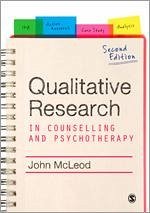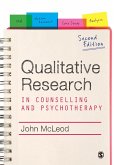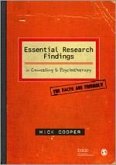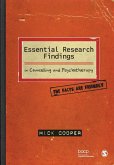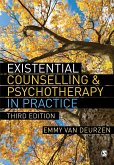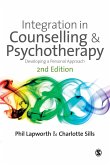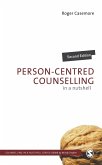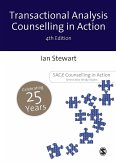The need to show how and why counselling works has led to an explosion of research activity, and a growing focus on research in counselling and psychotherapy teaching and practice. Yet this book, even now in its second edition, stands alone in addressing qualitative research in therapy.
Leading expert John McLeod helps readers through each stage of the research process, explaining techniques for gathering data, writing up the study and evaluating the findings. Each qualitative method is clearly described and critically assessed in terms of its own strengths and weaknesses. Examples from actual research studies are given to show how the methods work in practice. This new edition incorporates developments in qualititative research over the last ten years and includes eight new chapters, covering:
-interpretative phenomenological analysis (IPA)
-autoethnographic methods
-action research
-case study methods
For all those involved in research - whether as part of academic study or in practice -this book will be essential reading. As an introduction to qualitative methods, it is the perfect course text for all training programmes in counselling, counselling psychology and psychotherapy, and will also be of interest to those who work in areas such as psychiatry, clinical psychology and mental health nursing, or who provide counselling in other professional areas such as teaching, nursing and social work.
McLeod is Professor of Counselling, University of Abertay Dundee.
Leading expert John McLeod helps readers through each stage of the research process, explaining techniques for gathering data, writing up the study and evaluating the findings. Each qualitative method is clearly described and critically assessed in terms of its own strengths and weaknesses. Examples from actual research studies are given to show how the methods work in practice. This new edition incorporates developments in qualititative research over the last ten years and includes eight new chapters, covering:
-interpretative phenomenological analysis (IPA)
-autoethnographic methods
-action research
-case study methods
For all those involved in research - whether as part of academic study or in practice -this book will be essential reading. As an introduction to qualitative methods, it is the perfect course text for all training programmes in counselling, counselling psychology and psychotherapy, and will also be of interest to those who work in areas such as psychiatry, clinical psychology and mental health nursing, or who provide counselling in other professional areas such as teaching, nursing and social work.
McLeod is Professor of Counselling, University of Abertay Dundee.
'The book is an excellent reference book for researchers in counseling and psychotherapy field who want to situate their research practice based on qualitative distinctions that they wish to bring forward on particular phenomenon of counseling and psychotherapy' - The Qualitative Report ------------------------------------------------------------------------ 'I highly recommend this thoughtful scholarly book for readers at all levels who want to learn about qualitative research. John McLeod has an excellent grasp on the philosophical underpinnings of qualitative research. And he presents various qualitative methods in a clear, fair, even-handed manner, encouraging readers to see the best in what the approaches have to offer. I really like his stance of not saying that there is one "right" method, but that all have different things to offer.' Clara E. Hil University of Maryland ------------------------------------------------------------------------ 'Once again John McLeod has created a wonderful resource for counselling and psychotherapy researchers in this updated book which demonstrates his impressive range and depth of knowledge. This book is of value to beginning and more experienced researchers in the field, as well as to those who teach and supervise research at Masters and Doctoral stages. McLeod produces finely balanced arguments for all research approaches and does not shy away from the political and methodological issues that engage therapy researchers and practitioners at this time.' Kim Etherington Ph.D. Emeritus Professor, University of Bristol

